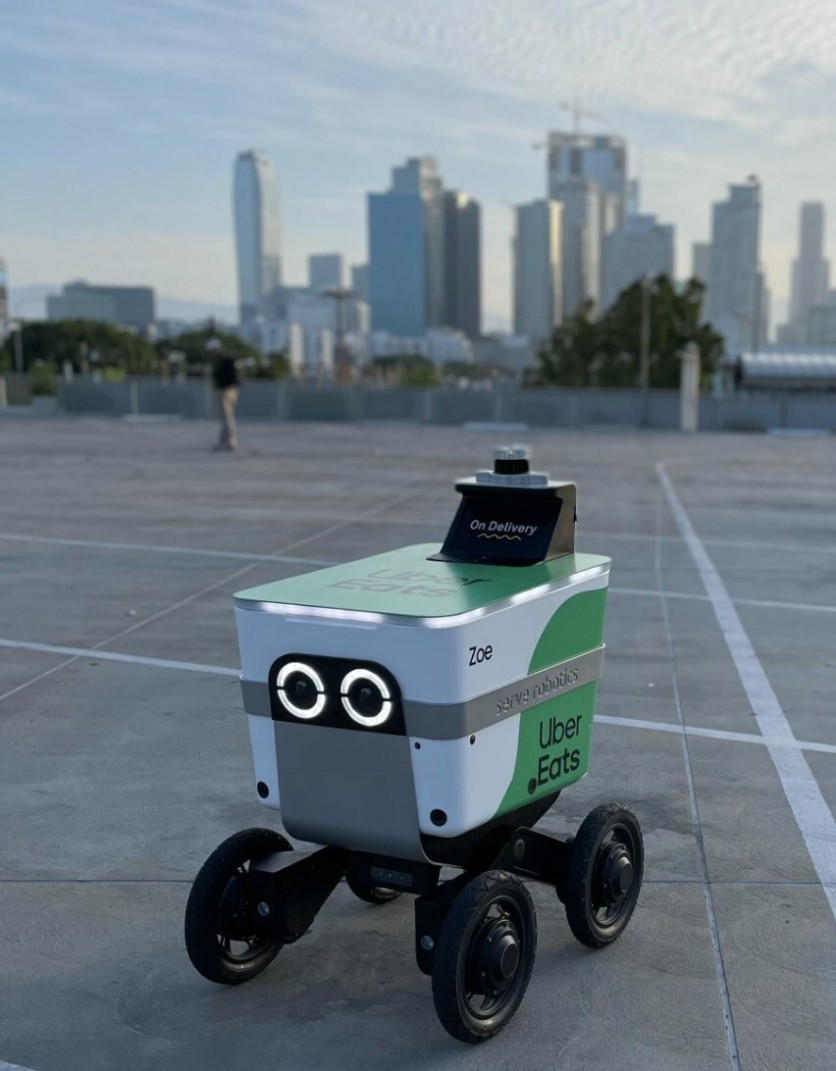Serve Robotics, an Uber spinout, has revealed the extent of its partnership with Uber Technologies, the renowned food delivery, and ridesharing platform.
The commercial agreement between the two companies paves the way for the deployment of Serve robots on Uber Eats in multiple markets across the United States.
With plans to field up to 2,000 Serve Robots, this collaboration holds the potential to address issues such as traffic congestion, air pollution, and the efficiency of last-mile delivery.
Moreover, it introduces customers and merchants to an innovative and unique delivery experience.

Robotic Deliveries
Serve Robotics said it had witnessed remarkable growth in its robotic deliveries, experiencing a monthly increase of over 30% since its inception in 2022. Presently, over 200 restaurants in Los Angeles are actively participating in Serve's delivery program.
The positive reception and the thousands of favorable ratings received for completed deliveries further demonstrate the growing awareness and interest in robotic delivery, particularly in one of North America's largest markets.
Dr. Ali Kashani, co-founder, and CEO of Serve Robotics, expressed his enthusiasm for the deepening collaboration with Uber, highlighting its significance in the mass commercialization of robotics for autonomous delivery.
He attributed this milestone to the success of their partnership and expressed his excitement about expanding this innovative technology to more cities nationwide.
"We are excited to continue our work with Uber to bring this innovative technology to more cities across the country," Kashani said in a statement.
Although Serve Robotics did not disclose the specific markets for its partnership with Uber, the company has set its sights on San Jose, Dallas, and Vancouver.
While the financial details of the deal remain undisclosed, Kashani explained Serve's unique business model, which centers around delivery-as-a-service. As per this model, Serve is compensated for each completed delivery, ensuring a sustainable and mutually beneficial arrangement.
Read Also : Uber Deploys Sidewalk Delivery Robots in Virginia - Food Delivery by Autonomous Bots Coming Right Up!
Level 4 Autonomy
Serve Robotics characterizes its sidewalk robots as possessing Level 4 autonomy, a classification designated by the Society of Automobile Engineers (SAE). Level 4 autonomy signifies the robots' ability to navigate all driving aspects without the need for human intervention under specific conditions.
However, in situations where the robots encounter unusual scenarios like police tape or construction, they pause and request remote supervisors to provide assistance. According to Kashani, the robots have the capability to adjust their route in the presence of obstacles.
While supervisors play a role in facilitating street crossings, Serve's robots are equipped with advanced technology that enables them to anticipate driver inattention and autonomously avoid collisions.
The partnership between the two companies has the potential to bring about advancements in food delivery services.
By integrating autonomous robots into the delivery process, there is a possibility of improving operational efficiency and minimizing environmental impact.
Additionally, this collaboration could introduce new levels of convenience and innovation for customers and merchants involved in the food delivery industry.
Related Article : Uber CEO Shares Experience as Undercover Driver! And It Wasn't Good; Here Are Problems He Encountered





